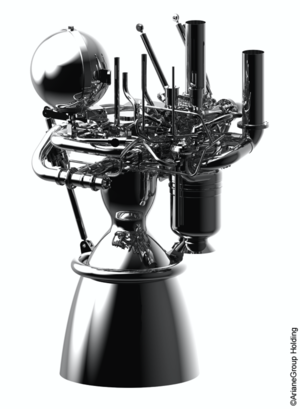CCSDS Standardization Committee
Founded in 1982 by the major space agencies of the world, the CCSDS (Consultative Committee for Space Data Systems) is a multi-national forum for the development of communications and data systems standards for spaceflight. Today, leading space communications experts from 26 nations collaborate in developing the most well-engineered space communications and data handling standards in the world. The goal? To enhance governmental and commercial interoperability and cross-support, while also reducing risk, development time and project costs. More than 460 space missions have chosen to fly with CCSDS-developed standards, and this number continues to grow.
Multispectral Hyperspectral Data Compression Working Group (SLS-MHDC)
Future space missions will make increasing use of multispectral and hyperspectral imaging instruments, which significantly increase the volume of data to be collected and transmitted to the ground. Cooperative mission scenarios exist where cross-support is needed for handling the resulting increased data volume. Industry, principal investigators, instrument developers, etc., will welcome an international standard for multi- and hyperspectral image data compression that would meet the unique requirements of space missions and provide state-of-the-art performance levels.
Implementation constraints severely limit the complexity of on-board processing. Existing standard approaches to compression of multispectral and hyperspectral data (e.g., JP3D, an existing 3D extension to the JPEG2000 standard) have high implementation complexity as they have not been optimized with respect to performance-complexity tradeoff for space applications. Current CCSDS data compression recommendations 121.0-B-1 and 122.0-B-1 have lower complexity and can be applied to multi- and hyperspectral data, but offer substantially less effective compression than modern compression algorithms designed specifically for multi- and hyperspectral image data. Therefore, it is the consensus of the participating agencies that the development of a new recommendation for compression of multispectral and hyperspectral image data is necessary.
The goals of the Multispectral and Hyperspectral Data Compression Working Group are to:
- Finalize selection criteria and requirements matrix for compression standard(s) for lossless and lossy compression of multispectral and hyperspectral imager data. Criterion will include implementation complexity as well as quantitative quality criteria to evaluate lossy compression effectiveness.
- Establish a set of test data (including, when available, ground truth data for a relevant application) for testing and evaluation of candidate compression algorithms.
- Evaluate candidate algorithms using the selection criteria established and considering the needs of the CCSDS member agencies.
- Develop a recommendation together with supporting information (simulation software, test data sets, and Green Book).
CCSDS published standards on Data Compression
File size: 256,280 Bytes
Lossless Data Compression. Blue Book. Issue 1. May 1997.
This Recommendation defines a source-coding data-compression algorithm and specifies how data compressed using the algorithm are inserted into source packets for retrieval and decoding.This document has been reconfirmed by the CCSDS Management Council through November 2011. The current version of this document contains all updates through Technical Corrigendum 2, dated September 2007.
File size: 1,121,448 Bytes
Image Data Compression. Blue Book. Issue 1. November 2005.
This Recommended Standard defines an image-data compression algorithm applicable to digital data from payload instruments and specifies means to control compression rate and how these compressed data shall be inserted into source packets for retrieval and decoding. The downloadable file includes all updates through Corrigendum 2, issued July 2008. For user test data, go here: http://cwe.ccsds.org/sls/docs/sls-dc/















 Germany
Germany
 Austria
Austria
 Belgium
Belgium
 Denmark
Denmark
 Spain
Spain
 Estonia
Estonia
 Finland
Finland
 France
France
 Greece
Greece
 Hungary
Hungary
 Ireland
Ireland
 Italy
Italy
 Luxembourg
Luxembourg
 Norway
Norway
 The Netherlands
The Netherlands
 Poland
Poland
 Portugal
Portugal
 Czechia
Czechia
 Romania
Romania
 United Kingdom
United Kingdom
 Slovenia
Slovenia
 Sweden
Sweden
 Switzerland
Switzerland


























